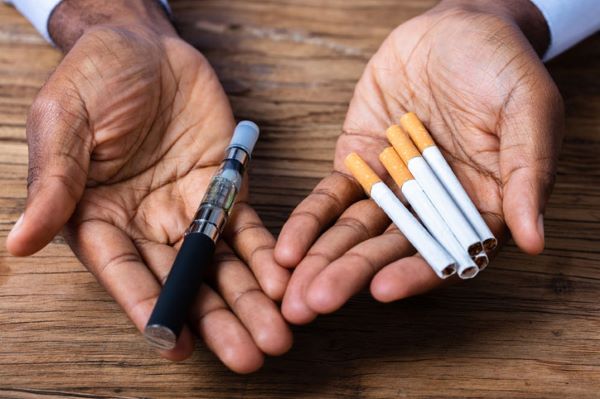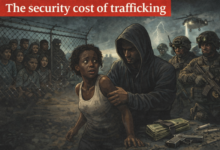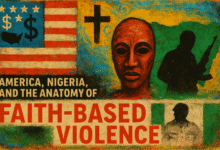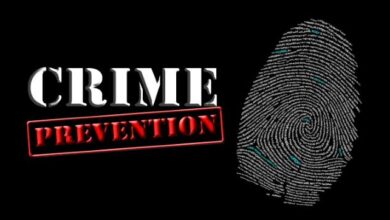Cigarettes and Vapes: Minors access tobacco in spite of ban
Law prohibits the sale of tobacco products to minors, people under the age of 18.
 By Abujah Racheal
By Abujah Racheal
On a scorching afternoon in the Federal Capital Territory, Abuja 15 year-old Tobi (not real name) stands in front of a small store in the Sagwari Estate Layout of Dutse-Alhaji.
With his he points at a pack that many in his age barely buy: a pack of cigarettes. The shop keeper, barely looking at Tobi, hands over the pack to him.
At Jiwa community, a suburb in the FCT, Ruth (not real name), another teenager, was at a street vendor’s stand, scanning the colourful array of vapes on display.
Malam Musa Ali, the vendor, offered her a particularly eye-catching flavour, and minutes later she paid.
What gives these underaged the confidence to patronise these harmful products in spite of all efforts by parents, guardians and other authorities to stop them. What is the implication of their action on the nation’s future?
The NTC Act, signed into law by then President Goodluck Jonathan in 2015, explicitly prohibits the sale of tobacco products to minors, people under the age of 18.
Increase health workers’ retirement age to address “Japa Syndrome”, says NMA
Yet, investigations reveal a different scenario. Vendors, often in ignorance, or defiance, continue to sell tobacco to minors, a clear indication of lapses in enforcement of rules and regulation on sell and consumption of cigarettes.
While physical stores remain a primary source, the online marketplace poses an even greater challenge.
Without robust age-verification systems, tobacco products are easily purchased with just a few clicks.
Experts like Dr Ngozi Okechukwu warn of dire consequences if the trend is not addressed urgently. Moreover, proximity selling point to schools exacerbates the issue.
Dr Bayo Olanrewaju, a consultant paediatrician, described this as a “public health time bomb,” with nicotine addiction taking root among young people.
Vaping or e-cigarette, often marketed as a safer alternative, is becoming a popular choice among Nigerian youth.
However, studies, such as those from Johns Hopkins University, have identified harmful chemicals in e-cigarettes, posing significant health risks.
Prof. Best Ordinoha of University of Port Harcourt Teaching Hospital warned that even the seemingly mild symptoms vaping could lead to chronic health issues, further straining Nigeria’s healthcare system.
According to a study published in Tobacco Induced Diseases, about 16,100 tobacco-related deaths occur annually in Nigeria. Experts say this figure may be underestimated due to weak surveillance systems.
Additionally, 4.7 million or 5.6 per cent of Nigerian adults currently use tobacco products, with 3.1 million representing 3.9 per cent of them identified as current smokers.
Current smokers are smokers that have smoked 100 cigarettes in their lifetime and currently smoking.
More concerning is that an estimated 25,000 Nigerian children aged 10 to 14 years smoke cigarettes daily.
In spite of Nigeria’s commitment to the Framework Convention on Tobacco Control, cigarettes remain affordable for young people because they are sold in single sticks.
This is in spite of the provisions of Article 16 of the Framework Convention on Tobacco Control (FCTC), to which Nigeria is a signatory. It prohibits sells of cigarettes to minors.
In April 2023, at the first National Tobacco Control Budget Advocates meeting, participants discussed the dire financial constraints facing the Federal Ministry of Health (FMoH) and other implementing agencies.
Without sufficient resources to carry out education campaigns, regulate the industry, and enforce the law, the NTC Act remains little more than a paper tiger.
Nigeria’s reliance on donor funding for tobacco control programmes has proven inadequate.
The tobacco industry, recognising the gap in resources, has exploited this vulnerability, forging partnerships with various government agencies under the guise of corporate social responsibility (CSR).
For instance, British American Tobacco Nigeria (BATN), through its BAT Foundation, has been active in sectors such as agriculture, providing grants and partnerships that subtly promote its interests.
These partnerships violate the spirit of the NTC Act and compromise the integrity of tobacco control efforts.
The lack of resources for government agencies such as the Federal Competition and Consumer Protection Commission (FCCPC), which oversees the enforcement of the NTC Act, further hinders the implementation of effective policies.
With a meagre ₦4.7 million allocated to tobacco control in the 2023 national budget, the government has struggled to fight back against a well-funded and persistent tobacco industry.
Tobacco use costs Nigeria billions in healthcare and lost productivity annually. “The younger you start, the harder it is to quit,” said pulmonologist Funmi Adewale.
The long-term consequences—both health and economic—could be catastrophic for the country.
Dr Chukwuma Anyaike, Director, Public Health, FMoH, stressed the urgency of protecting Nigeria’s youths from the predatory practices of the tobacco industry.
“We must strengthen enforcement, raise awareness, and work collaboratively to safeguard the health of future generations,” Anyaike said.
Public health experts and educators advocate stronger enforcement mechanisms, community engagement and public awareness campaigns.
Strategies such as vendor training, visible signage at points of sale, and penalties for non-compliance are critical.
Additionally, parents say the authorities should integrate anti-tobacco education into curricula, empowering students to resist peer pressure.
For Nigeria to protect its youth and secure its future, experts canvass that the fight against tobacco must go beyond legislation to include comprehensive education, enforcement and support for at-risk communities.
The persistent problem of underage tobacco use in Nigeria is a pressing public health concern.
By taking decisive action, the government, healthcare providers and communities can work together to protect the future of the nation’s greatest assets, youths.
News Agency of Nigeria.












